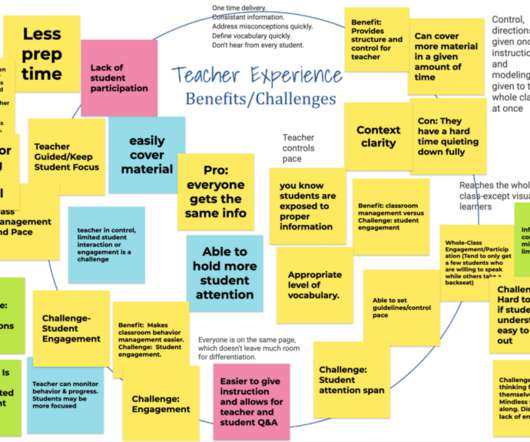4 Strategies Designed to Drive Metacognitive Thinking
Catlin Tucker
SEPTEMBER 22, 2018
Metacognition is defined as thinking about one’s thinking or learning. More formally, “metacognition was originally referred to as the knowledge about and the regulation of one’s cognitive activities in learning processes” (Veenman, Van Hout-Wolters, & Afflerbach, 2006, p.3).













Let's personalize your content